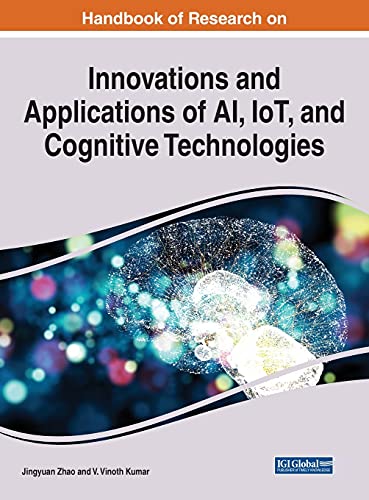Synopsis:
Recently, artificial intelligence (AI), the internet of things (IoT), and cognitive technologies have successfully been applied to various research domains, including computer vision, natural language processing, voice recognition, and more. In addition, AI with IoT has made a significant breakthrough and a shift in technical direction to achieve high efficiency and adaptability in a variety of new applications. On the other hand, network design and optimization for AI applications addresses a complementary topic, namely the support of AI-based systems through novel networking techniques, including new architectures, as well as performance models for IoT systems.
IoT has paved the way to a plethora of new application domains, at the same time posing several challenges as a multitude of devices, protocols, communication channels, architectures, and middleware exist. Big data generated by these devices calls for advanced learning and data mining techniques to effectively understand, learn, and reason with this volume of information, such as cognitive technologies. Cognitive technologies play a major role in developing successful cognitive systems which mimic ""cognitive"" functions associated with human intelligence, such as ""learning"" and ""problem solving."" Thus, there is a continuing demand for recent research in these two linked fields.
Innovations and Applications of AI, IoT, and Cognitive Technologies discusses the latest innovations and applications of AI, IoT, and cognitive-based smart systems. The chapters cover the intersection of these three fields in emerging and developed economies in terms of their respective development situation, public policies, technologies and intellectual capital, innovation systems, competition and strategies, marketing and growth capability, and governance and relegation models. These applications span areas such as healthcare, security and privacy, industrial systems, multidisciplinary sciences, and more.
This book is ideal for technologists, IT specialists, policymakers, government officials, academics, students, and practitioners interested in the experiences of innovations and applications of AI, IoT, and cognitive technologies.
About the Authors:
Jingyuan Zhao obtained her PhD in Management Science and Engineering from University of Science and Technology of China. Dr. Zhao's research expertise includes management of technology innovation, technology strategy, behavior and information technology, regional innovation systems and global innovation networks, high-tech industries, multinational governance, and science and technology policy. She has teaching experience of 15 years at the graduate and undergraduate level. Research portfolio includes more than fifty peer-reviewed articles in highly regarded journals, authored books, multiple book chapters, and conference presentations. Dr. Zhao also has extensive industry experience and provides consulting services to major corporations such as China Mobile. She serves as editor-in-chief of International Journal of e-Collaboration(IJeC).
V. Vinoth Kumar is an Associate Professor in the Department of Computer Science and Engineering in MVJ College of Engineering, Bangalore, India. He is a highly qualified individual with around 8 years of rich expertise in teaching, entrepreneurship, and research and development with specialization in computer science engineering subjects. He has been a part of various seminars, paper presentations, research paper reviews, and conferences as a convener and a session chair, a guest editor in journals and has co-authored several books and papers in national, international journals and conferences. He is a professional society member for ISTE, IACIST and IAENG. He has published more than 15 articles in National and International journals, 10 articles in conference proceedings and one article in book chapter. He has filed Indian patent in IoT Applications. His Research interest includes Mobile Adhoc Networking and IoT.
"About this title" may belong to another edition of this title.
![]()
